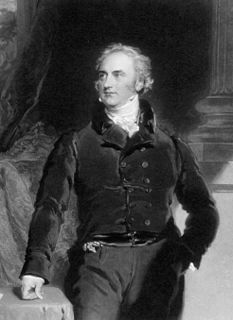A Quote by William Faulkner
The writer has three sources: imagination, observation, and experience
Quote Topics
Related Quotes
Imagination! Imagination! I put it first years ago, when I was asked what qualities I thought necessary for success upon the stage. And I am still of the same opinion. Imagination, industry [hard work], and intelligence-the three I's-are all indispensable to the actor, but of these three the greatest is, without any doubt, imagination.
We have three approaches at our disposal: the observation of nature, reflection, and experimentation. Observation serves to assemble the data, reflection to synthesise them and experimentation to test the results of the synthesis. The observation of nature must be assiduous, just as reflection must be profound, and experimentation accurate. These three approaches are rarely found together, which explains why creative geniuses are so rare.
The idea of a group of elders is that, in past civilizations, they have linked worlds; the other world was also present in this one. There is also the argument that elders have "experience." The problem is that experience teaches fear of change. Experience kills imagination. Experience makes people conservative. What we are facing tomorrow requires the force of imagination, not wisdom from yesterday.
We know nothing of the principle of health, the positive of which pathology is the negative, except from observation and experience. Nothing but observation and experience will teach us the ways to maintain or to bring back the state of health. It is often thought that medicine is the curative process. It is no such thing; medicine is the surgery of functions as surgery proper is that of limbs and organs.
Henry Corbin creates the world - most of all his examination of the imagination and what the imagination was for him. Some philosophers would think of the imagination as a synthetic ability, how you put different things together. Artists more think of the imagination as creativity. So I really like the way that he presents the imagination as a faculty that allows one to experience worlds that are not exactly physical but are real nonetheless.
You see, it's really quite simple. A simile is just a mode of comparison employing 'as' and 'like' to reveal the hidden character or essence of whatever we want to describe, and through the use of fancy, association, contrast, extension, or imagination, to enlarge our understanding or perception of human experience and observation.





































